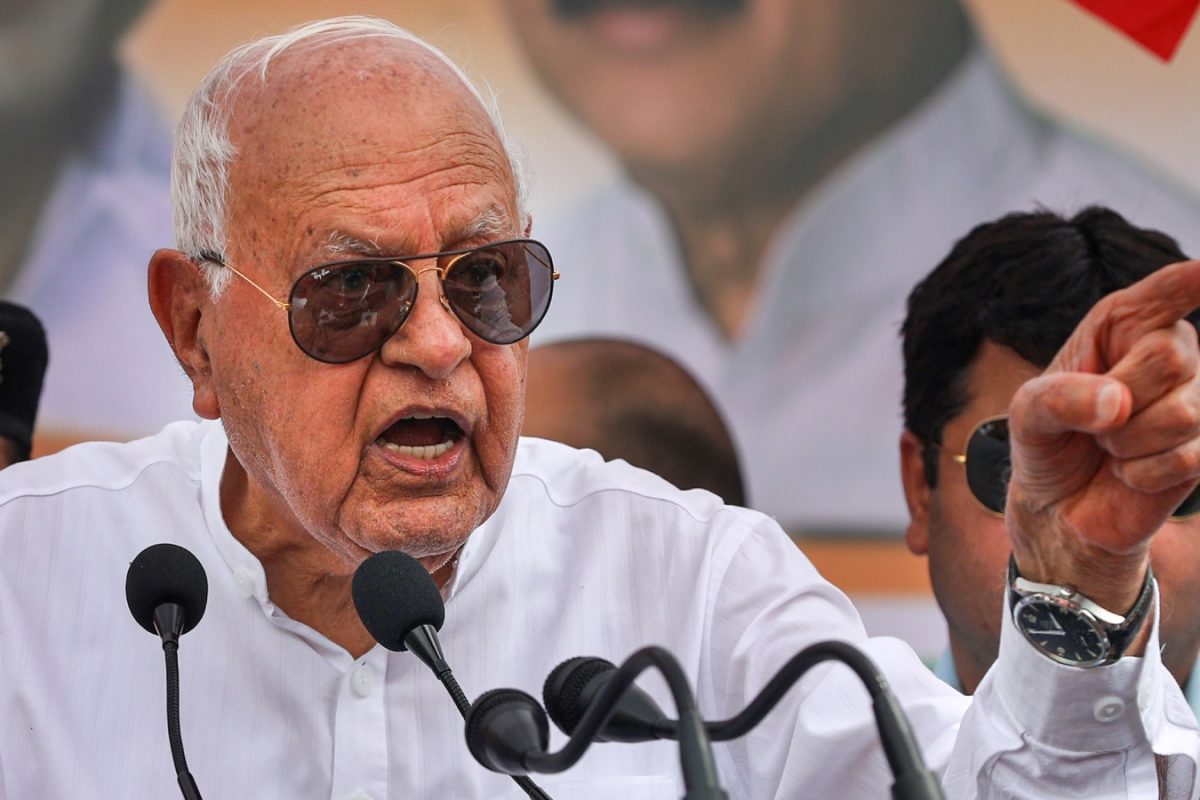

The recent terror attack in Pahalgam, which claimed the lives of 26 individuals, has triggered widespread condemnation and a reassessment of relations with Pakistan. Among the voices expressing strong disapproval is National Conference President Farooq Abdullah, a leader known for previously advocating dialogue with the neighboring country.
Abdullah's stance has shifted dramatically in the wake of the Pahalgam attack. Speaking to reporters outside the Jammu and Kashmir Assembly complex, he asserted that India will deliver a "befitting reply" to Pakistan for the heinous act. He emphasized that Pakistan must abandon the "misleading notion" that Jammu and Kashmir will ever become part of their territory through acts of terrorism. "I have always favored dialogue and was desirous of talks, but what will we tell to the families of the terror victims? Will this be justice?" Abdullah questioned, highlighting the anguish and betrayal felt by the Kashmiri people.
The Jammu and Kashmir Assembly convened a special session to address the Pahalgam attack, passing a resolution expressing shock and anguish over the barbaric act. The assembly also resolved to fight resolutely against the nefarious designs aimed at disturbing communal harmony and hindering progress in the region. A two-minute silence was observed to pay homage to the victims of the terror attack.
Abdullah's condemnation extends beyond the immediate act of violence. He directly addressed the "two-nation theory," a concept often propagated by Pakistani leaders, stating that the people of Jammu and Kashmir rejected this theory in 1947 and continue to do so today. "We regret that our neighbor today also does not understand that it has murdered humanity. If they think that by doing this, we will go with Pakistan, we should clear their misunderstanding. We did not go with them in 1947, so why will we go today? We threw the two-nation theory into the water at that time. Today, we are also not ready to accept the two-nation theory. Hindu, Muslim, Sikh, Christian, we are all one. We will give a befitting reply to them," Abdullah declared, underscoring the region's commitment to unity and secularism.
The Pahalgam attack, which targeted tourists in the Baisaran Valley, a popular scenic spot, has been described as the deadliest incident of its kind in India since the 2008 Mumbai attacks. The Resistance Front (TRF), an offshoot of the Pakistan-based Lashkar-e-Taiba, initially claimed responsibility for the attack, citing opposition to Indian government policies regarding residency permits in Kashmir. However, the group later retracted its claim.
In response to the attack, the Jammu and Kashmir government has suspended all trekking activities across the region to ensure the safety of tourists and locals. Security concerns have escalated, and the government has taken measures to address the situation directly.
The attack has prompted strong reactions from various quarters. A Union Minister of State called for decisive action against Pakistan, including military intervention in Pakistan-occupied Kashmir (PoK) if necessary. The incident has also led to increased tensions along the Line of Control (LoC), with reports of ceasefire violations by Pakistani troops.
The National Investigation Agency (NIA) has launched a detailed probe into the Pahalgam terror attack, utilizing video evidence and eyewitness testimony to reconstruct the events. A reward of Rs 20 lakh has been announced for information leading to the capture of the terrorists involved.
The Pahalgam terror attack has not only resulted in the loss of innocent lives but has also triggered a reassessment of India's approach to dealing with Pakistan. Farooq Abdullah's shift in stance, from advocating dialogue to demanding decisive action, reflects the growing sentiment that cross-border terrorism cannot be tolerated and that a strong message needs to be sent to deter future attacks.